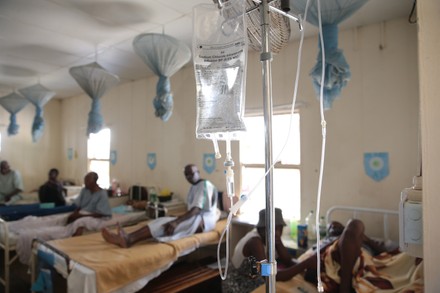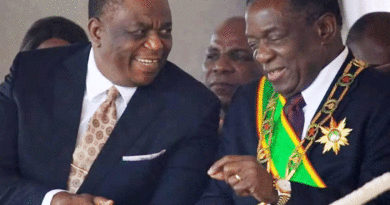Zimbabwe Battles Surge in Fake Medical Qualifications
Authorities including the Government and health professional bodies are on high alert to protect patients from falling victim to fake doctors and nurses in the wake of revelations that criminal syndicates are churning out fake academic qualifications.
The syndicates are dishing out fake qualifications in medicine and other academic certificates, which are being used to land jobs in the country’s health sector and gain promotions.
A week-long Check Point investigation uncovered a shadowy black-market, where counterfeit medical diplomas circulate freely, corrupt gatekeepers look the other way and bogus doctors roam hospital corridors, endangering lives.
In downtown Harare, forged certificates are an open secret. For as little as US$200, anyone can buy a nursing diploma.
A full medical degree, complete with transcripts, embossed seals, signatures, and even QR codes mimicking those of local universities and some regional institutions, goes for about US$500 — equivalent to a semester’s fees at some local colleges and universities.
Check Point’s investigations revealed that the syndicates print documents in bulk on imported security paper using templates downloaded online.
Their clientele ranges from teachers seeking higher pay grades to nurses desperate for fast-tracked promotions, and increasingly, fraudsters posing as doctors.
The Nurses Council of Zimbabwe (NCZ) admits the challenge but says number of culprits have been arrested and prosecuted and authorities are staying on guard to protect patients and the public.
“A total of seven individuals were flagged for using fake practising certificates from 2024 to date,” the nurses’ body said in a written response.
Over the past five years, more cases have been uncovered, leading to certificate revocations and criminal prosecutions.
“The cases involving fraudulent nursing certificates have been met with a range of disciplinary actions commensurate with their severity.
“Some were adjudicated at Council level, resulting in the revocation of practising rights. The majority have been referred to the judiciary for further action,” the NCZ said.
The Council confirmed that most forgeries use near-perfect counterfeit templates. To counter this, the body said it is tightening security.
“We are enhancing digital infrastructure to prevent the forgery of Nursing Certificates . . . and leveraging technology to improve the security and authenticity of our documents,” it said.
Officials declined to reveal specific anti-fraud measures, but confirmed new features such as holograms, QR codes and digital verification are being embedded in practising certificates.
The Council also works with police, offering testimony in court and alerting employers to suspicious documents.
“We have reported cases to the Zimbabwe Republic Police, provided witness testimony, raised awareness with employers and disciplined individuals caught using fraudulent certificates,” it said
A doctors’ body also confirmed that bogus medical practitioners have been flushed out from some private hospitals.
“In the private sector, we are seeing bogus doctors walking hospital corridors with stethoscopes,” said Professor Johannes Marisa, president of the Medical and Dental Private Practitioners of Zimbabwe Association (MDPPZA).
Recent scandals show how impostors can infiltrate hospitals.
In Bulawayo, Taurai Prosper Vanhuvaone — posing as “Dr Prosper Mpofu” — worked undetected for nearly two years at Mpilo Central Hospital and United Bulawayo Hospitals.
He treated patients, prescribed drugs and even charged consultation fees. He was finally exposed, convicted on fraud charges and jailed.
His deceit extended beyond hospitals; he swindled his former girlfriend of US$1 600 by promising her a place in a nursing school.
In Harare, the Parirenyatwa Group of Hospitals has become a frontline defence. In 2023, its security teams arrested 33 fake doctors, tutors and other impostors.
Between January and April this year, a further 11 were caught and handed to police. Among them was Andrew Mapulanga (52), arrested for possessing articles with criminal intent, and 24-year-old Blessing Nyanzira, who tried to pass through a staff checkpoint in scrubs with a stethoscope.
He carried two conflicting IDs and claimed to be a University of Zimbabwe student, but his lies were quickly exposed.
Another impostor, Douglas Garikayi Mutoredzanwa, raised suspicion when staff noticed he was holding an X-ray upside down.
Checks revealed he was not a doctor at all and had an outstanding arrest warrant dating back to 2019.
Behind the statistics lies a devastating human cost. In Kuwadzana, 10-year-old Tafadzwa was left permanently disabled after a fake doctor misdiagnosed malaria and prescribed expired antibiotics.
In Hwedza, a man was crippled after a botched surgery performed by a former pharmacy assistant using forged credentials.
In Chitungwiza, widow Eliza Tasara wept as she recalled how her husband died of untreated tuberculosis after months of bogus “treatment.”
“We trusted him because he looked like a real doctor,” she said. “By the time we realised, it was too late.”
The NCZ insists it is tightening checks through digital verification.
“We are aware of the problem and are implementing stricter measures,” the body told Check Point.
Other African countries have faced similar problems and adopted tougher safeguards. South Africa vets foreign-trained doctors through biometrics while Kenya conducts surprise raids on clinics. Zambia operates a whistleblower hotline for reporting unlicensed practitioners. Herald




